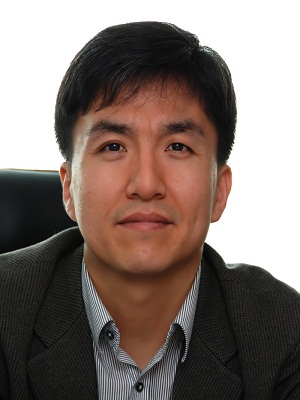people
Professor Kwang-Hyun Cho of KAIST’s Department of Bio and Brain Engineering received the “Scientist of the Month” award in February 2015 from the Ministry of Science, ICT, and Future Planning of the Republic of Korea and the National Research Foundation of Korea. The award was in recognition of Professor Cho’s contribution to the advanced technique of controlling the death of cancer cells based on systems biology, a convergence research in information technology (IT) and biotechnology.
Professor Cho has published around 140 articles in international journals, including 34 papers in renowned science journals such as Nature, Science, and Cell in the past three years. His work also includes systems biology textbooks and many entries in international academic encyclopaedia.
His field, systems biology, is a new biological research paradigm that identifies and controls the fundamental principles of organisms on a systems level.
A well-known tumour suppressor protein, p53, is known to suppress abnormal cell growth and promote apoptosis of can cells, and thus was a focus of research by many scientists, but its effect has been insignificant and brought many side effects. This was due to the complex function of p53 that controls various positive and negative feedbacks. Therefore, there was a limit to understanding the protein with the existing biological approach.
However, Professor Cho found the kinetic change and function of p53 via a systems biology approach. By applying IT technology to complex biological networks, he also identified the response to stress and the survival and death signal transduction pathways of cardiomyocytes and developed new control methods for cancer cells.
Professor Cho said, “This award served as a momentum to turn over a new leaf.” He added, “I hope convergence research such as my field will bring more innovative ideas on the boundaries of academia.”

-
research KAIST Identifies Master Regulator Blocking Immunotherapy, Paving the Way for a New Lung Cancer Treatment
Immune checkpoint inhibitors, a class of immunotherapies that help immune cells attack cancer more effectively, have revolutionized cancer treatment. However, fewer than 20% of patients respond to these treatments, highlighting the urgent need for new strategies tailored to both responders and non-responders. KAIST researchers have discovered that 'DEAD-box helicases 54 (DDX54)', a type of RNA-binding protein, is the master regulator that hinders the effectiveness of immunotherapy—opening
2025-04-08 -
research KAIST Discovers Molecular Switch that Reverses Cancerous Transformation at the Critical Moment of Transition
< (From left) PhD student Seoyoon D. Jeong, (bottom) Professor Kwang-Hyun Cho, (top) Dr. Dongkwan Shin, Dr. Jeong-Ryeol Gong > Professor Kwang-Hyun Cho’s research team has recently been highlighted for their work on developing an original technology for cancer reversal treatment that does not kill cancer cells but only changes their characteristics to reverse them to a state similar to normal cells. This time, they have succeeded in revealing for the first time that a molecular
2025-02-05 -
research KAIST Develops Foundational Technology to Revert Cancer Cells to Normal Cells
Despite the development of numerous cancer treatment technologies, the common goal of current cancer therapies is to eliminate cancer cells. This approach, however, faces fundamental limitations, including cancer cells developing resistance and returning, as well as severe side effects from the destruction of healthy cells. < (From top left) Bio and Brain Engineering PhD candidates Juhee Kim, Jeong-Ryeol Gong, Chun-Kyung Lee, and Hoon-Min Kim posed for a group photo with Professor Kwang-
2024-12-23 -
research A KAIST Research Team Identifies a Cancer Reversion Mechanism
Despite decades of intensive cancer research by numerous biomedical scientists, cancer still holds its place as the number one cause of death in Korea. The fundamental reason behind the limitations of current cancer treatment methods is the fact that they all aim to completely destroy cancer cells, which eventually allows the cancer cells to acquire immunity. In other words, recurrences and side-effects caused by the destruction of healthy cells are inevitable. To this end, some have suggested a
2023-06-20 -
event KAIST Holds 2023 Commencement Ceremony
< Photo 1. On the 17th, KAIST held the 2023 Commencement Ceremony for a total of 2,870 students, including 691 doctors. > KAIST held its 2023 commencement ceremony at the Sports Complex of its main campus in Daejeon at 2 p.m. on February 27. It was the first commencement ceremony to invite all its graduates since the start of COVID-19 quarantine measures. KAIST awarded a total of 2,870 degrees including 691 PhD degrees, 1,464 master’s degrees, and 715 bachelor’s degrees
2023-02-20